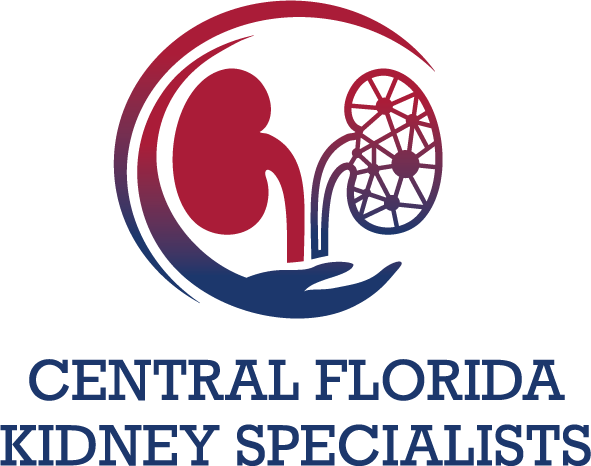Optimizing Your Recovery: Post-kidney Transplant Care for Lasting Health in Central Florida
Central Florida Kidney Specialists
offers complete post-transplant care, direction, and ongoing medical supervision to patients in Central Florida. From routine medical visits to our comprehensive patient education program, we are dedicated to educating you throughout your post-transplant journey. The most common questions about post-kidney transplant treatment are addressed in the sections below.
What to Expect Post-transplant
After a kidney transplant, Central Florida Kidney Specialists will provide you with all-encompassing care and assistance. Our knowledgeable staff will assist you with the post-transplant procedure, guaranteeing a seamless transition and providing you with the knowledge and tools required for a full recovery.
After Discharge, When Will I be Seen at Central Florida Kidney Specialists?
For the first several weeks following your release from the transplant center, you will see Central Florida Kidney Specialists on average three times a week. Between appointments, you might need to visit the clinic for blood work to verify your drug levels.
Once your kidney function has stabilized, you will be continuously monitored but seen less regularly. Once the doctor has examined you and reviewed your laboratory results, they will decide when your next appointment is scheduled. For as long as you have your kidney transplant, you will require routine check-ups with your doctor.
What Tests Will I Need After I Leave the Hospital?
Certain diagnostic procedures, such as electrocardiograms (EKG) and X-rays, could be requested.
Who Takes Care of Me at Central Florida Kidney Specialists?
A transplant team of advanced practice physicians and transplant nephrologists will assess you. A different team member can assess you at every clinic appointment. Devoted nurses, social workers, nutritionists, and personnel from the clinic and laboratory with transplantation training will also be helping with your post-transplant care.
When Do I Return to My Primary Care Doctor?
After your blood chemistries and medication blood levels have stabilized, you will be urged to see your referring physician again for ongoing monitoring. Information on your transplant procedure, current medications, and lab results will be forwarded to your physician. Your referring physician could be requested to submit additional tests to Central Florida Kidney Specialists. You will still need to visit Central Florida Kidney Specialists regularly.
When Can I Consume Alcoholic Beverages?
Small amounts of alcohol won't hurt you unless you have been diagnosed with liver disease. Consult a doctor or nurse before consuming alcohol following a transplant.
How Long Do I Have to Be off Work? What Are the Work Restrictions?
One of the objectives of transplantation is to assist patients in leading productive lives again. After your transplant, you ought to be able to resume your job rather quickly. See your doctor to obtain a "Return to Work" statement.
What is Organ Rejection?
The body's innate desire to reject your new kidney due to its alien tissue makes rejection possible. Rejection can damage your kidneys irreversibly and perhaps stop them from functioning. Nearly all recipients of kidney transplants experience episodes of rejection. A kidney transplant biopsy may be required to identify the kind of rejection.
Typically, rejection can be in one of two types:
- Acute: This may happen months or years after transplantation but usually during the first three months. An acute rejection response is frequently linked to non-adherence to immunosuppressive drug regimens.
- Chronic: This rejection is a persistent inclination to reject the kidney. Rejection frequently shows no symptoms at all. Lab testing is typically used to diagnose this rejection. When given cautious medical care, this kind of rejection process frequently proceeds slowly. The kidney that was transplanted might keep working for a few years.
To lessen instances of rejection:
- Maintain a regular journal and take your medications exactly as prescribed by your doctor. Unless your doctor or nurse instructs you otherwise, never stop taking or substituting your medications.
- If your transplant team has not prescribed or authorized the use of any medication, including over-the-counter medications, do not take it.
- Call Central Florida Kidney Specialists or your transplant center before filling any prescriptions if a doctor outside of them (or the facility where you receive your post-transplant follow-up care) wants to start you on any new drugs for any reason.
What Are Kidney Rejection Symptoms?
Often, acute rejection has no symptoms. Occasionally, one or more of the following rejection signs and symptoms may appear:
- Over the kidney, there is pain and swelling
- Reduction in the production of urine
- Fever above 100 degrees
- Abrupt enlargement, particularly in the hands, feet, and face
- Gaining weight quickly
- An elevation in blood pressure
- Cough or dyspnea malaise overall: "just not feeling well" or "flu-like" symptoms
How is Kidney Transplant Rejection Diagnosed?
A kidney biopsy, lab testing, and a combination of rejection signs and symptoms are frequently used to identify rejection.
How is Kidney Transplant Rejection Treated?
A variety of drugs are available to treat rejection. These drugs are administered intravenously. These extremely strong immunosuppressive medications attack the cells responsible for the rejection. Your oral medications may be increased, lowered, or stopped throughout this therapy.
What Happens if the Kidney Transplant Fails?
The anti-rejection drugs will be stopped if the kidney fails. Because of potential difficulties, the transplanted kidney may occasionally need to be surgically removed. You'll start dialysis, and after you fully recover, you might have another transplant.
Come to Central Florida Kidney Specialists for the committed post-transplant care and assistance you need. Make an appointment now to take the next step toward long-term health. Please contact us if you have any more questions; we are happy to assist you. Give us a call now to begin.
Have a Post-kidney Transplant Care Question? Call Today!
Quick Links
Contact Information
Proud Members of:
National Kidney Foundation of Florida
Florida Society of Nephrology (FSN)
Business Hours
- Mon - Fri
- -
- Sat - Sun
- Closed
Payment Options:












